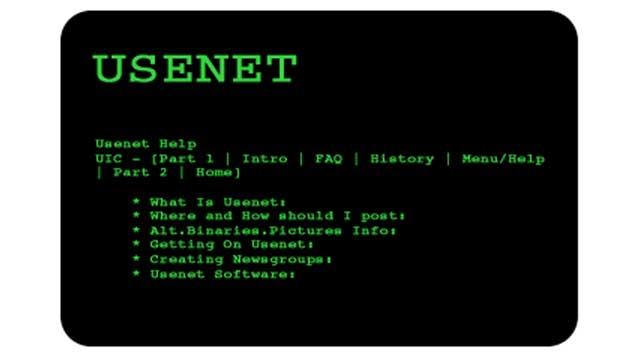
Russia stole the lead this month in the race for Total Surveillance with the introduction of Law 139-FZ, ostensibly to trap pedophiles and prevent terrorist attacks, but with the added ability to delve deep into its citizens' emails and watch everything they do on-line.
The spooks in Washington and London may have felt miffed to be pipped to the post but neither will have to wait long as their own plans for similar surveillance are well advanced.
According to Wired, Law 139-FZ allows for Deep Packet Inspection (DPI) technology nation-wide, giving the Kremlin the ability not only to block specific sites but also specific items within sites, such as a particular video on YouTube. And it goes further than that.
“DPI allows the state to peer into everyone’s Internet traffic and read, copy or even modify e-mails and webpages,” says Eric King, head of research at Privacy International.
It can also see who is uploading or downloading, what is inside, and who is looking for it.
Although DPI has been used for years in the commercial world, only Tunisia, China, Iran and Kazakhstan have legally used the system to curb dissidents.
“No Western democracy has yet implemented a dragnet black-box DPI surveillance system due to the crushing effect it would have on free speech and privacy,” says King.
Generally, ISPs and most governments can examine the “header” of a message, seeing where it came from and where it’s going, but they have not been able legally to peer inside.
DPI works by setting up inspection points, the so-called black-boxes, at the ISPs and routing traffic directly to the security services where it can be examined, altered, destroyed, stored or forwarded as deemed necessary.
But, like most technology, there is often something available to help you counter it. Any Russian looking to beat the black-box need only look back briefly in history. During the 1991 coup attempt to oust Gorbachev, activists used one of the least-known parts of the early Internet, the Usenet Newsgroups, to get news in and out of the country and to communicate secretly among themselves.
Usenet Newsgroups are a bit like an email system or bulletin board where anybody can post on any subject and anybody else can read those messages and download attachments. You need special Newsreader software and a low-cost subscription to Usenet. It can be installed on any operating system and in most modern devices.
Usenet has been largely ignored by Internet users probably because it does not have the same glitzy appeal of the World Wide Web but rather resembles an endless list of discussion topics, which is precisely what you do see.
But Usenet can defeat DPI technology because it prevents the ISP from seeing inside your data by using secure 256-bit SSL encryption. Although your ISP can tell if you are accessing Usenet, once you pass beyond the curtain, everything you do there is hidden from inspection.
There are Newsgroups devoted to every conceivable subject from alt.fan.jackie-chan and alt.aviation.jobs to alt.binaries.sounds.mp3.world-music.
Using the Russian doll principle, communications can easily be hidden by placing them inside any group you like, preferably the dullest possible. By placing your message in the group alt.emircpih.pets.porcupines and giving it a header that no one will want to open such as Spam-Buster Pro, you will have placed a needle inside the vastest of all possible haystacks that nobody without prior knowledge will ever be able to find.
The most popular Usenet Newsreader software is Free Agent, available in both free and paid-for versions. A network subscription costs US$4.99 per month upwards and gives access to an enormous store of digital material, offering a better option than torrents for downloading without drawing attention.
A popular provider is Giganews with bundled Mimo newsreader and add-ons, including Cloud storage and the useful and speedy Vypr Virtual Private Network (VPN) which further masks you on Usenet and allows you to browse the regular Internet with a high degree on anonymity by letting you pretend to be in any one of six countries.
It is advisable to install the Newsreader and any VPN onto a USB thumb drive for extra security and to access them from there. If security is a serious concern, only access Usenet via the thumb drive at a cybercafé or public library, and preferably one a long way from your own home.
Unlike the hidden networks of the Deep Web, such as Tor, Usenet has the advantage of being less suspicious. In Russia, and wherever else they can inspect you in depth, an ISP log showing you accessed Tor is sufficient reason to warrant a knock on the door at four in the morning.
Moscow makes no mention of DPI in its new law and its unlikely few others will in the future. Britain has been flirting with the idea of DPI for years and will, no doubt, add it quietly to the new Communications Data law currently being drafted.
With such a supreme tool for homeland security, it would be surprising in the extreme if the Utah Data Center which comes on-stream next year does not have DPI among its arsenal of technology because it would be meaningless without it.
We may never know which Western democracy will be first to employ DPI and achieve near Total Surveillance over its population. For all anyone knows, the CIA, NSA and other security services are already employing DPI on the quiet.
See more work by author Conrad Jaeger.
3 WAYS TO SHOW YOUR SUPPORT
- Log in to post comments











